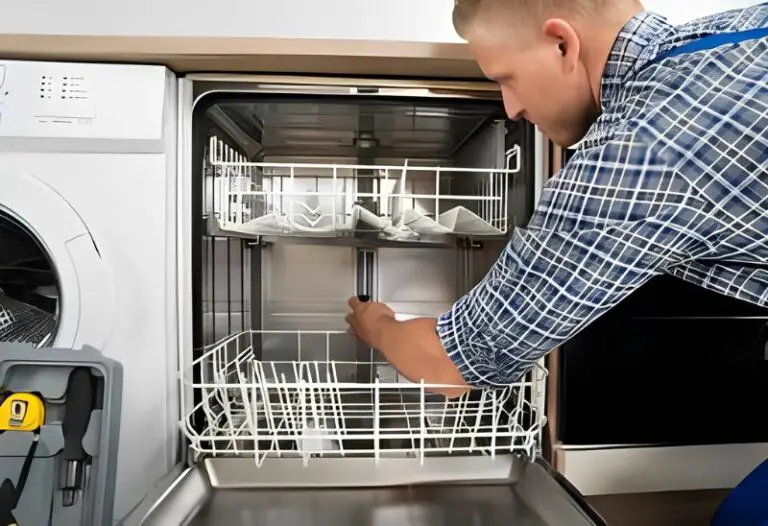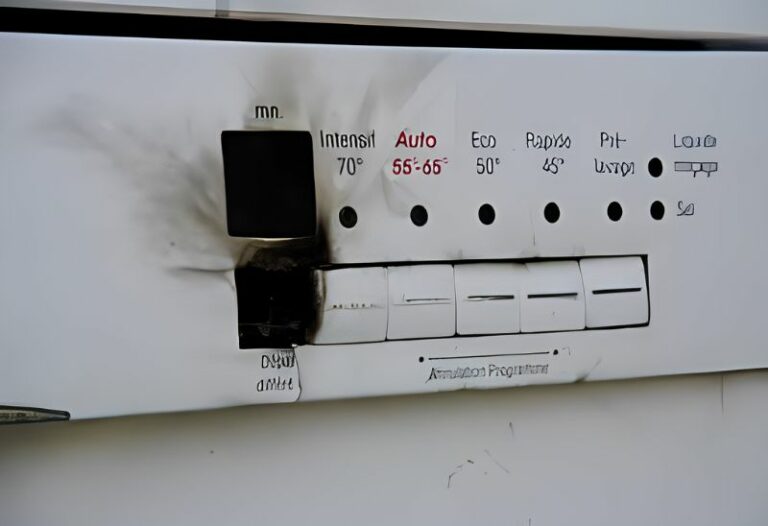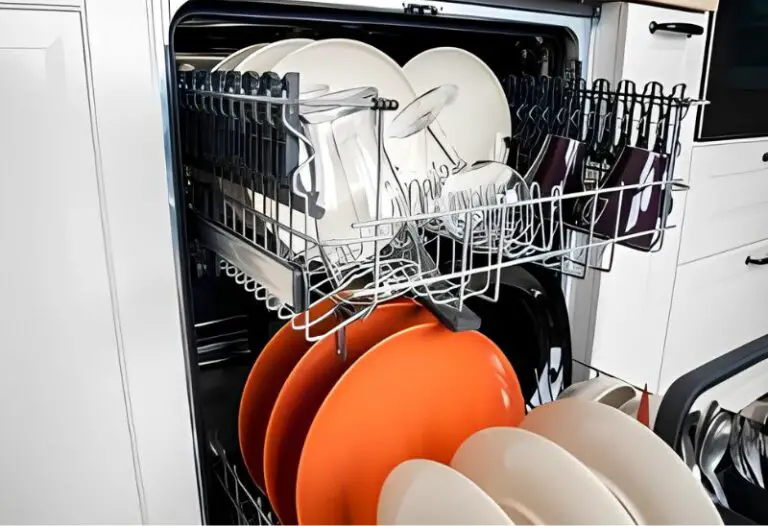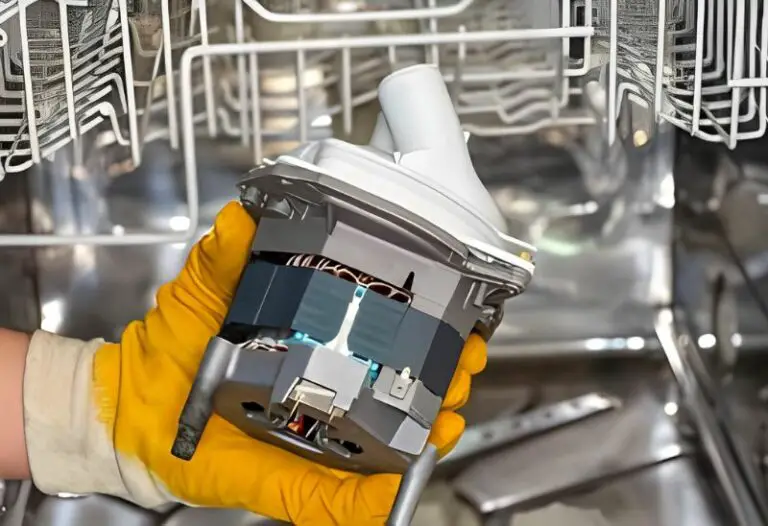Can Dishwashers Be Hardwired? A Deep Dive
When setting up a new dishwasher, or remodeling your kitchen, you might wonder about your dishwasher’s power connection. Can dishwashers be hardwired? Understanding the electrical setup is essential for safety and functionality.
Choosing between hardwiring your dishwasher or going with a plug-in option has implications for installation, kitchen design, and maintenance. This article will clear up your doubts and provide a step-by-step guide should you decide to hardwire.
Key Takeaways
- Dishwashers can either be hardwired or connected with a plug-in power cord.
- The choice between hardwiring or using a plug-in dishwasher depends on your kitchen design and electrical requirements.
- Hardwiring a dishwasher typically involves a more complex installation process.
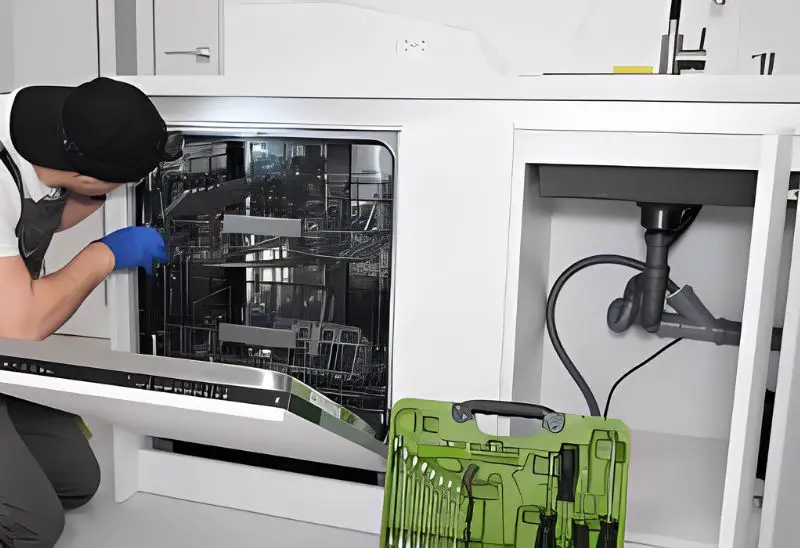
Plug-In vs. Hardwired: Understanding the Dishwasher Power Options
When selecting a dishwasher, understanding the power connection options is important. Most new dishwashers come with a power cord that fits into a dedicated 120V outlet. This plug-in feature offers flexibility, allowing you to move or replace your dishwasher with ease. Plus, with plug-in models, no special electrical work is required, which can keep costs down.
On the flip side, some premium or commercial dishwashers might need to be hardwired. This means they are directly connected to your home’s electrical system. While this setup can be more involved, it provides a safer environment by avoiding the presence of a power cord, which could become a tripping hazard.
Benefits of Plug-In Dishwashers:
- Flexibility: Easy to disconnect and move if needed.
- Simplicity: No need for electrical expertise or hiring an electrician.
- Cost-Effective: Typically doesn’t involve extra costs for installation.
Benefits of Hardwiring:
- Increased Safety: No loose or dangling cords.
- Cleaner Look: No visible cords means a neater kitchen space.
- Secure Connection: Direct power supply can be more reliable.
To help you compare, here’s a quick reference table:
| Feature | Plug-In Dishwashers | Hardwired Dishwashers |
|---|---|---|
| Installation | Plugs into an outlet | Direct connection to home’s electrical |
| Flexibility | Easily moved or replaced | Permanent, stable fixture |
| Safety | Good with correct outlet | Excellent; no external cords |
| Appearance | Visible cords | No cords, hidden wires |
| Cost | No additional cost | May require an electrician |
Keep in mind, while the majority of dishwashers are designed to be plugged in, considering a hardwired model could be the right choice for you if you value a sleeker design and a more permanent solution.
Determining If Your Dishwasher Needs Hardwiring
Before you start using your dishwasher, it’s essential to know how it’s going to fit into your electrical system. Will you need to hardwire it? Let’s find out together!
First things first, grab the manual that came with your dishwasher. This booklet is a treasure trove of information. Look for a section that talks about installation, specifically electrical requirements. If the manual says hardwiring is mandatory, there you go—you’ve got your answer.
- Consult the Manual:
- Necessity: Check if hardwiring is a requirement.
- Instructions: Look for installation sections pertaining to electrical connections.
Sometimes, dishwashers are designed with a junction box where all the magic happens. Basically, it’s a little space usually at the back where wires come together. If you see one, it’s a good hint that your dishwasher may be designed to be hardwired.
- Junction Box Presence:
- Check the back of your dishwasher.
- A junction box usually indicates a hardwire setup.
Now, it’s super important to also consider the building codes and regulations in your area. These are like the rules of a game but for your home’s safety and functionality. Some places have specific rules that say your dishwasher should be hardwired. To find out, you can give your local building department a call or look up the local regulations online.
- Local Building Codes:
- Safety: Ensure compliance with safety standards.
- Regulations: May dictate hardwiring requirements.
Remember, your safety is key. If you’re not feeling totally confident about dealing with electrical stuff, it’s okay to ask for help. Electricians are like wizards with wires, and they’ll know all about the local codes, too.
- When in Doubt:
- Consult a professional electrician.
- They are knowledgeable about codes and safe installation.
The Hardwiring Process: A Step-by-Step Overview
Let’s walk through the steps you’ll need to follow to get your dishwasher hardwired safely.
Step 1: Safety Precautions First things first, you’ll want to make sure that you’re working safely:
- Locate your home’s electrical panel.
- Turn off the power to the circuit where you’ll be connecting the dishwasher.
- Double-check that the power is off using a voltage tester.
Step 2: Prepare the Wiring
- Run a 12/2 NM cable, which includes a hot (usually black), neutral (usually white), and ground wire, from your electrical panel to where your dishwasher will be.
- A good rule of thumb is to make sure you have enough cable to easily reach the dishwasher terminals.
Step 3: Making the Connections Now let’s get that dishwasher powered up:
- Find the junction box on the dishwasher and remove its cover.
- Connect the black (hot) wire from your NM cable to the dishwasher’s black wire.
- Attach the white (neutral) wire to the dishwasher’s white wire.
- Connect the ground wire (bare or green) from your NM cable to the dishwasher’s green wire or grounding screw.
Make sure to use wire nuts to secure the connections and wrap them with electrical tape for added stability.
Step 4: Secure and Test
- Once all your wires are connected and secured, carefully place them back into the junction box and replace the cover.
- Go back to the electrical panel and turn the power back on.
- Give your dishwasher a test run to make sure everything is working perfectly.
Additional Considerations for Hardwiring
When you’re looking into hardwiring your dishwasher, you should keep a few things in mind. The process requires tools like a screwdriver, wire stripper, pliers, and drill. Make sure you also have electrical connectors, nuts, a terminal box, and a grommet to protect the wiring.
Here’s a quick checklist:
- Tools Needed: Gather a reliable screwdriver, drill, wire stripper, and pliers before starting.
- Installation Process: Ensure all connections are secure, including the terminal box and grommet placement to safeguard the wires.
- Permitting: Check if your area requires a permit for this type of work as it involves the home’s electrical system.
- Professional vs. DIY: If you’re not experienced with electrical tasks, a professional can ensure a safe and reliable installation.
- Future Repairs: Consider how hardwiring may affect future repairs or kitchen layout changes. It’s a more permanent installation.
- Safety First: Prioritize safety considerations; incorrect wiring can be hazardous.
- Dedicated Circuit: Ensure your dishwasher is on a dedicated circuit to prevent overloading.
Hardwiring Dishwasher: Further Exploration
Hardwiring means the appliance is connected without a plug to a dedicated circuit in your terminal box, which can be a more reliable and safe option if done correctly.
- Benefits of Hardwiring:
- Often considered more aesthetically pleasing as no cords are visible.
- Less risk of the dishwasher being accidentally unplugged.
- Drawbacks:
- Less flexibility; more challenging to move the dishwasher during renovations or repairs.
- Requires tools such as wire strippers, pliers, drill, sandpaper, and a grommet for a proper installation.
When it comes to cost, a hardwired installation might be more expensive initially due to the need for professional installation and additional materials. However, safety should be a top priority. Improper installation can lead to risks such as electrical fires or appliance failure.
If you face issues like tripping breakers or power failures, ensure your dishwasher’s circuit isn’t overloaded and that connections are secure. For troubleshooting, always refer to the dishwasher’s manual and follow the manufacturer’s instructions.
Deciding to DIY or hire a professional depends on your comfort with electrical work. Professional installation ensures safety considerations are met and reduces the risk of errors.
Frequently Asked Questions
When it comes to updating your kitchen with a new dishwasher, knowing whether to hardwire or use a plug can make all the difference for your convenience and safety. Let’s dive into some commonly asked questions that can help you with the best approach for your dishwasher installation.
What are the steps to replacing a hardwired dishwasher?
To replace a hardwired dishwasher, you’ll need to shut off the power, disconnect the old dishwasher’s wiring, and remove the unit. Follow installation instructions for the new dishwasher, connecting the wiring and securing the unit in place. Always ensure that the power is turned off during this process to avoid electrical hazards.
Is it permissible by code to hardwire a dishwasher, and what are the regulations?
Yes, you can hardwire a dishwasher as it’s permissible by code. However, regulations often require a dedicated circuit and sometimes a disconnect switch for servicing. Make sure to consult the National Electrical Code (NEC) or local codes for specific requirements applicable to your area.
How do you install a hardwired dishwasher in a home?
To install a hardwired dishwasher, first prepare the electrical wiring and the space for the dishwasher. Connect the wiring to the dishwasher’s junction box and secure the ground wire properly. Following the manufacturer’s instructions, slide the dishwasher into place, level it, and then anchor it to the cabinetry.
What are the pros and cons of hardwiring vs. using a plug for a dishwasher?
Hardwiring a dishwasher creates a direct connection to your home’s electrical system, which can be more aesthetically pleasing and is considered more permanent. On the other hand, using a plug makes it easier to install and replace the dishwasher. However, plug-in installations require a nearby outlet and can sometimes be less stable due to the potential for accidental unplugging.
Can specific brands like LG, Whirlpool, or GE dishwashers be hardwired?
Yes, specific brands such as LG, Whirlpool, or GE dishwashers can be hardwired provided they are designed to accommodate such installations. It’s essential to check the user manual or with the manufacturer to ensure that the model supports hardwiring.
What are some highly recommended models for hardwired dishwashers?
While recommendations may vary based on individual preferences and updates to models, some of the consistently highly rated dishwashers suitable for hardwiring include options from top brands like Bosch, KitchenAid, and Miele, known for their reliability and performance. Always check recent reviews and product specifications for the latest information.
